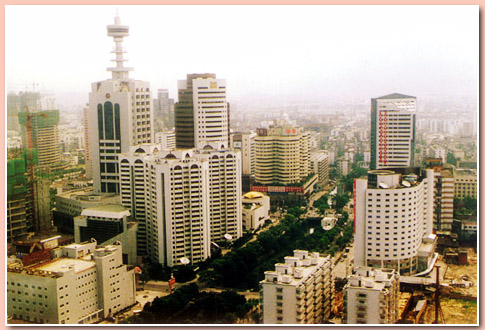 |
Fujian Province |
 |
Fujian Province |
Fujian Province, known as "Min", is situated along China's southeastern coast. It is separated from Taiwan only by the narrow Taiwan Straits. The Province occupies an area of 121, 400 square kilometers, with a population of 30 million. The provincial government has an immediate jurisdiction over 9 administrative prefectures and municipalities, which are subdivided into 64 counties and cities.
Fujian is one of China's experimental zones of comprehensive reforms. The province has formed a multi-leveled pattern of opening to the outside world, which includes "economic special zones, economic and technological development zones, opening coastal cities and coastal economic opening zones with the practice of special policies and flexible measures in their economic activities with the outside world. "Fujian is also a major hometown of overseas Chinese. Over the world, there are about 8 million overseas Chinese of Fujian origin and 80 percent of Taiwan's population is of Fujian origin.
Based on the mountain at the back and overlooking the sea, Fujian is known for its "eight mountains, one river and one tenth of Chinese Mu of rice field, " and enjoys its numerous mountains, vast sea and mild temperature. The Province is rich in mineral resources, forestry, waterpower and aquatic products.
Since the beginning of the national drive of reform and opening to the outside world, economy has developed rapidly in Fujian. In 1994, the annual GNP reached 168.5 billion yuan, with the total economic value occupying the 12th place in China, the GNP per person the 8th place and the comprehensive level of economic social development the 10th place.
Fujian's mild, humid, subtropical and marine climate is especially conducive to crop production. Of Fujian's 1.24 million hectares of cultivated land, 1 million hectares are rice fields. Rice, wheat, sweet potatoes, soybeans and peanuts are Fujian's major cash crops while sugarcane, tea, fruit, tobacco, rubber, jute and bluish dogbane are Fujian's important industrial crops.
Industry in Fujian is of considerable dimensions. There are 14,000 village and township enterprises, of which 250 are large and medium-sized key enterprises. The major industrial product groups are building materials, forest products, light industrial products, electronic products, chemical products, machinery products, metallurgical products and energy products.
Fujian boasts its numerous tourist attractions, both in beautiful scenery and in outstanding and influential figures. Tourist areas include mountains, rivers and well-known cities: Quanzhou, one of China's famous historic and cultural ancient cities, is a human and scenic spot approved by the UNESCO; Xiamen, known as "Garden on the Sea", is a picturesque economic special zone; Wuyi Mountains is famous for its peaks and Wuyi tea; Kaiyuan Temple in Quanzhou, Yongquan Temple in Fuzhou, Guanghua Temple in Putian and Nanshan Temple in Zhangzhou are the four famous grand ancient temples in Fujian. In addition, there are historic relics left behind by Zhuxi and Zheng Chenggong.